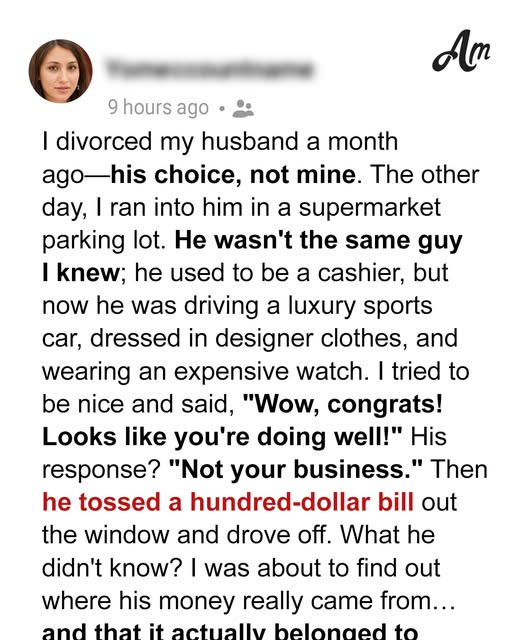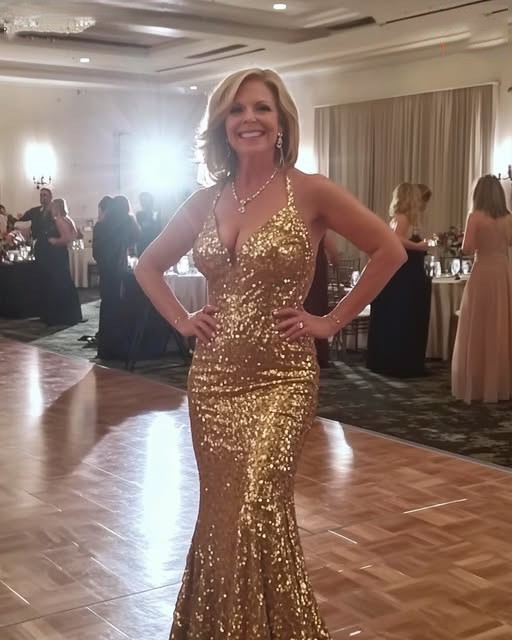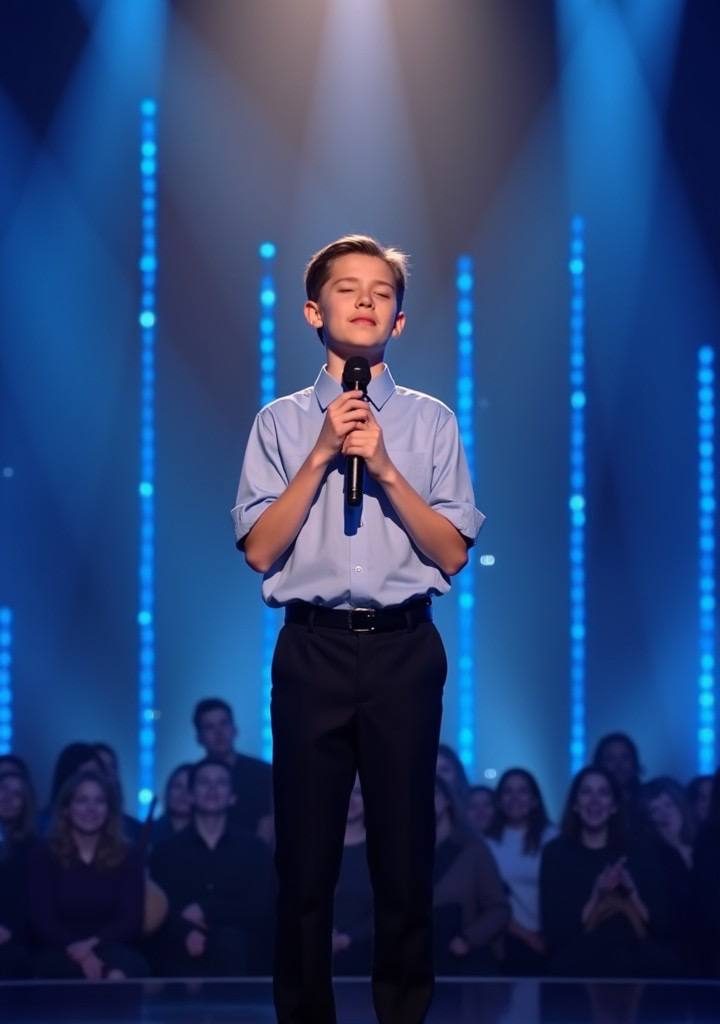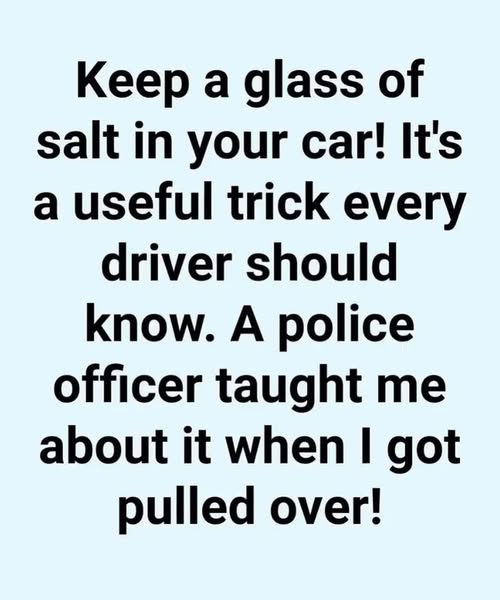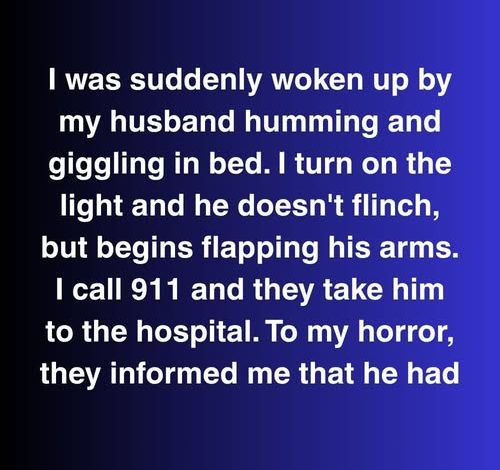
I Was Suddenly Woken Up By My Husband Laughing In His Sleep, Then I Found His Secret Life
I woke in the middle of the night to a strange, almost childlike sound. A soft humming followed by giggling echoed in the dark. At first, I thought I was dreaming, but when I turned over, I saw my husband, Sayed, lying next to me with his eyes half-open, fluttering his hands in the air like a child pretending to fly. His lips twitched with laughter, and his body twitched with small, erratic movements. Something was wrong—deeply wrong.
“Sayed?” I whispered, shaking his shoulder. He didn’t respond. The giggles morphed into garbled words I couldn’t make out. Panic flooded my chest. My hands trembled as I grabbed my phone and dialed 911.
In what felt like seconds, flashing red and blue lights lit up our street. Paramedics burst into the bedroom, checking his vitals, strapping him to a stretcher, and rushing him out into the ambulance. I followed in silence, heart pounding louder than the sirens. At the hospital, the doctor finally appeared, face serious but calm. “Your husband experienced a mild seizure,” he said. “Most likely triggered by high stress or severe sleep deprivation.”
I sat in the hallway staring through the glass at Sayed’s still body. Tubes, monitors, and a mask over his mouth. It felt like I was watching a stranger—someone I thought I knew, someone I had built a life with, reduced to quiet breaths and flickering lines on a screen.
A nurse approached gently and asked if Sayed had shown any strange behavior recently. I opened my mouth to say no. But I couldn’t. Something had shifted between us months ago. He was distant. He stayed up late with his laptop, always snapping it shut the moment I entered the room. His phone never made a sound, always on silent. I’d once heard a woman’s name—Nadia—during a call he answered in the kitchen. He said she worked in procurement. I wanted to believe him. I blamed the tension on work, on stress, on the difficult months we’d had recovering from the financial fallout of the pandemic.
But as I sat there watching him lie helpless in a hospital bed, I realized I didn’t really know the man I’d married anymore.
That night, I returned home to gather clothes for him. As I walked past his desk, I paused. His laptop sat open. I wasn’t sure what I was looking for. I only knew I couldn’t ignore that feeling in my gut any longer.
There was no password.
I opened a folder innocently labeled “Invoices_2022.” Inside wasn’t accounting or spreadsheets—it was something else entirely. Row after row of names, payments, notes. My stomach dropped as I read: transfers totaling nearly $50,000 over nine months, all labeled “N.L.” One entry made my blood run cold—“E-transfer: Nadia L. – $4,200 – Tuition Payment.”
Tuition? My heart raced. I searched his email for her name. Hundreds of messages appeared. It started innocently—jokes, casual work talk—but quickly turned personal. Confessions. Flirting. Talk of Santorini and regrets. Then, photos. One, in particular, broke me: Sayed kissing a young woman with pink curls and gold hoop earrings, her smile radiant. The date? October. The same weekend he told me he was at a conference in Montreal.
The truth was undeniable. I wasn’t paranoid. My husband had been living a secret life right under my nose.
The next morning at the hospital, he acted like everything was fine. Sipping juice, joking with nurses, texting someone when he thought I wasn’t watching. When we got home, I didn’t wait. I confronted him in the kitchen, voice quiet but steady. “Who’s Nadia?”
His expression froze. “It’s not what you think,” he said.
That line stung worse than a confession. He told me Nadia was the daughter of a family friend. That he’d just been helping her with school. That it wasn’t romantic. I showed him the photos, the messages, the receipts. His lies unraveled. He said it got blurry. That he was emotionally confused. “Did you sleep with her?” I asked.
Three seconds of silence said more than any words ever could.
I didn’t scream. I didn’t throw things. I just left. I drove to my cousin Rukhsana’s house and collapsed into her arms. Two weeks away gave me perspective. I dug deeper. Nadia had posted about “Shawn”—the name Sayed used with her. He had an entire second identity, a life that ran parallel to ours.
I quietly met with a lawyer and uncovered more horrors: he’d taken out a second loan against our home. Maxed out credit cards in my name. Forged my signature on a financial application.
When I confronted him again, he crumbled. Handed me a box of papers—bank statements, emails, evidence of his unraveling life. I filed for divorce that day.
But the final twist came months later, in an envelope stamped with legal notice. A fraud complaint—filed by Nadia. She accused him of pretending to be divorced, promising to fund her business, then abandoning her. Her viral video outing him as a scammer obliterated his reputation. His business collapsed. Everything he tried to build through lies fell apart.
Meanwhile, I rebuilt.
I took music classes at the community center. Reconnected with friends I’d drifted away from. Joined a women’s support group that met every Thursday in a chilly church basement. And slowly, the weight lifted.
One weekend, I visited a local craft fair. There, I met Teo—a retired mechanic with a warm smile and gentle voice. We chatted about plants and old cars. It wasn’t fireworks. It was calm. Honest. No pretense, no secrets. Just steady kindness.
I took things slowly. I’d learned the hard way how easily love can blind you to lies. This time, I listened to myself. Trusted the voice I’d ignored for too long.
Looking back, I realize the signs were always there—silent phones, late-night whispers, hidden bank statements. We talk ourselves out of our instincts because we want to believe the best in those we love. But sometimes the truth doesn’t whisper. Sometimes it grabs you in the middle of the night with laughter that isn’t laughter at all.
And when you finally listen—really listen—you can begin again.
So if your gut is whispering that something feels off, don’t ignore it. The truth will always come—maybe in a dream, maybe in an inbox, maybe in a folder you were never meant to find.
But once it does, you’ll have a choice.
And freedom, I’ve learned, is worth everything.

